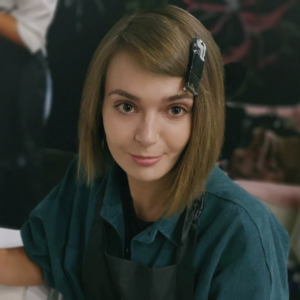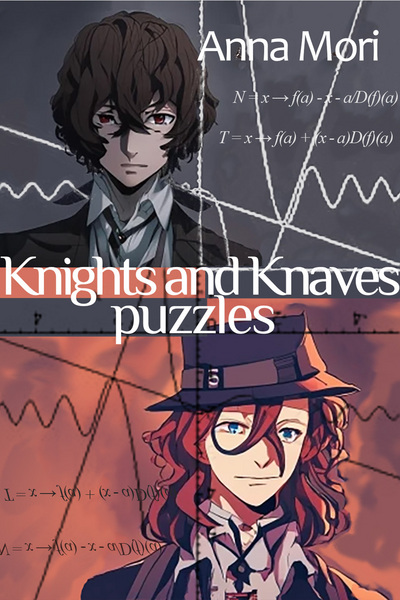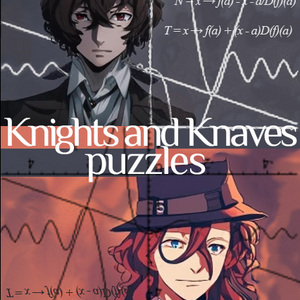"Kay was in a dreadful fright; he tried to say the Lord's Prayer, but he could only remember the multiplication table …"
I paused, uncertain whether to continue.
"Do you notice the insinuation?" Joanne murmured softly, careful not to wake the children, a smile in her voice. "A good person thinks of faith, of God, while a boy with a shard of the crooked mirror in his eye can only think of arithmetic…"
"Of course. And only a scoundrel would ever find beauty in the symmetry of snowflakes under a magnifying glass rather than in the living roses," I replied in the same hushed tone, puzzling over why she had chosen this story in particular. A metaphor of some sort? I was Kay, and she the Snow Queen? It was difficult to imagine this woman — this living calculator — harboring any romantic inclinations toward me. My thoughts did not venture further down that path.
"That’s the moral of the tale, after all: the highest virtue is selflessness, not intellect. Are you truly a teacher?"
"I used to be, yes… And as a former mathematics teacher, I find such a moral slightly offensive."
"What use is multiplication," I mused, "if, in the end, the word Eternity will assemble itself, guided solely by love?"
"Precisely. I see here an implication of the popular genius-villain trope — you know, how movie murderers are always connoisseurs of classical music. What do you suppose gave rise to that?"
I hadn’t noticed how fully the conversation had drawn me in.
"I suspect it originates from an age-old ideological war, typically framed as ‘the conflict between town and village’ — more simply, between collectivism and individualism, the herd and the self," I answered. "The village is a tight-knit community where everyone knows each other, where people live in families, celebrate births and mourn the dead together. Such a society fosters collectivist morality — altruism, as well as doctrines that emphasize unity, whether religious or ideological, be it socialism or fascism — whatever binds people together. The city, by contrast, isolates individuals; each person survives alone. In place of herd instincts, individualism takes root. The city’s highest value is the self — self-reliance, personal freedoms, the triumph of reason as a pragmatic tool over the village’s simple moral values."
Joanne listened with keen interest. She observed, "An interesting perspective. And of course, a city-dweller often has both money and leisure, allowing them to appreciate non-essential pursuits like art and music. Right?"
"Right. Among ‘the common folk,’ one often hears the sentiment that these very qualities — wealth and excess time — are what make villains villains. And so we arrive at the caricature of the cultured cannibal, eviscerating his victims to the strains of Wagner."
We sat there in the dimness, surrounded by peacefully slumbering children, discussing ideology and social structures. A peculiar sight for any hypothetical observer.
"And where do you stand in this conflict?" she asked.
"One does not take sides if one seeks to judge objectively. When you reach a certain age, you’ve encountered countless ethical constructs, each branding some values as virtuous and others as vile. You can pick whichever you like."
"Or you can refuse to choose, is that it?"
"Precisely."
"You said ‘a certain age,’ but a more fitting phrase might be ‘a certain degree of indifference’… But surely you must value something, Mr. Ikita. You seem to value your intellect?"
"Of course — inasmuch as it serves practical needs. Intelligence evolved as a tool to facilitate survival. But one mustn’t make a god of reason. In essence, self-awareness is nothing more than a useful delusion, a means to schematize the world. One might even say — a metaphor, built upon itself."
"You are fascinating to converse with. And whatever you may say… or perhaps even think — you do have a position. I wonder if you noticed that you used the word herd — twice."
With that, she rose.
"It’s late. It seems you’ve gotten along well with the children. I hope your work here brings you joy. And… Believe me, nothing would please me more than for us to be on the same side."
I watched her go, perplexed.
***
“You shall be executed at noon next Friday; it will come as a surprise to you…”
If Joanne truly was a third-level player, merely biding her time, prolonging the exquisite pleasure of the kill, at what precise moment had she realized who I was? I combed through every action, dissected each word I had uttered, turning them over in my mind like a gambler scrutinizing the dice that had sealed his fate.
And what if she had been playing at a higher level from the very beginning? I had thought myself shrewd, sacrificing Atsushi and Akutagawa for the sake of the unexpected — yet perhaps she, too, had sacrificed her own subordinates, those faceless figures I knew nothing about — miss George Eliot and whoever else — to instill in me the comforting illusion of control.
And when would she grow bored of toying with me and finally decide to kill me — or “purify” me?
If she erased my ability, what would remain of me? If her power could not merely strip a gift away but overwrite memory itself — could it, like Q, reshape the mind so completely that I would be left wandering a virtual reality of her design? What if all I recalled of myself was already a fabrication, and Osamu Dazai had never existed?
Who am I? Do I exist at all?
“...Self-awareness is nothing more than a useful delusion, a means to schematize the world, a metaphor, built upon itself...”
“221,” the number inked onto my hand. I found myself looking at it incessantly, perhaps ten times a day — whenever uncertainty gnawed at me and I needed an anchor, however tenuous. 221. Baker Street. The meeting with Chuuya.
I resolved to hold onto this: as long as my ability remained intact, I was still myself. But the last time I had used No Longer Human was during the purification ceremony — when I had reached out to Charlotte, half-undone the barrier, and helped Chuuya escape. Since then, I had no way of knowing if my power had been stripped from me — for Avalon held no gifted to test it on.
Whenever Joanne was near, I took care to maintain a deliberate distance, ensuring she never so much as brushed against me, even under the pretense of accident. But what if her nullification did not require direct contact? What if it worked remotely? Through food, perhaps? Do not eat the food of the fae, do not give them your true name, do not step within their rings of mushrooms — for when the magic fades, they will find your withered corpse at the center…
Perhaps this orphanage, this ceaseless rain beating against the windows, these children — perhaps all of it was merely a construct of my mind. I would not have been surprised.
Drip. Drip.
One would think that three days would suffice to remember a few names, yet I had come to distinguish the children not by their faces, but by their lost abilities: the girl who had once been a pyrokinetic, the girl who used to freeze things, the boy who had once taken the form of a raven — like invalids labeled by their afflictions: the deaf, the blind, the lame…
One does not need to understand people in order to be liked by them — especially children. It takes little effort to find a kind word, an encouraging remark. The younger ones clung to me from the start, while the older ones — the likes of that “fuck off” boy — kept their distance at first. A few were even blunt enough to voice their disdain:
“You’re worse than the others because you only pretend to care, when really, you couldn’t give a damn.”
I did not argue. Instead, with unexpected gestures, captivating stories, and useful advice, I gradually won them over as well. If you asked me why I bothered, I would have said it was simply force of habit. I had spent years in the Agency being charming, being likable. It was second nature now.
In hindsight, I regretted not adopting a different strategy, for these damaged children — clearly unaccustomed to kindness — latched onto me with alarming fervor. And that… that was discomfiting. It was suffocating.
In this place, I thought often of Oda. He had liked children. He would have made a wonderful teacher — earnest in his desire to help, genuinely invested in whatever trivial matters troubled them. He saw people. I saw strings waiting to be pulled.
“You really do get along with everyone remarkably well,” Joanne observed, visiting the orphanage as she did each day — to oversee our progress, as well as to teach her mathematics lessons.
“Gaining a child’s trust is hardly a challenge.”
“No more difficult than piquing someone’s curiosity or earning their affection, wouldn’t you say?”
“Does it surprise you that I try to endear myself to them?” I smiled, not quite understanding what she was getting at.
“Not in the least. Being good is simply more pragmatic than being bad.”
“Precisely. I came to the same conclusion long ago — mistreating people yields diminishing returns. You may use them once, perhaps twice, but after that, they’re worthless to you. A good person, however — people become attached to them. And those who count themselves as your friends can be used over and over again.”
Joanne shook her head. “That may be the most cynical definition of morality I’ve ever heard… but I suppose it’s still reassuring that you arrived at it, however roundabout the path.”
I was candid with her on purpose — deliberately laying bare my cynicism, ensuring that was the facet of myself she saw. But there was something else.
Odasaku — he had believed in kindness. He held that certain things must be done simply because they were noble, righteous… merciful. That the greatest virtue was, above all, to be merciful.
The sentimental might claim I had left the Mafia because betraying that principle would have meant betraying his memory. But what nonsense it would be — to abstain from an act merely because one dead man would have disapproved?
To me, kindness had been meaningless — until I found a way to rationalize its utility. That was what I had just outlined to Joanne.
That was the chasm between Oda and me.
And yet, despite knowing I would never be anything like him — never be anything like Atsushi, or Chuuya — I was invariably drawn to such people, as if bound to them by some inexorable law of polarity.
And therein lay the problem: baring my amorality so freely to Joanne, I was ensnaring myself within my own trap. The more I played this role, the more I struggled to remember what I was doing here at all. If I neither sought anything nor believed in anything… then why had I begun this game in the first place?
There was no meaning in it.
As there was no meaning in anything.
“...But I meant something else,” Joanne said. “You have a remarkable talent for being different — that was the first thing I noticed about you… A man with a vivid imagination can be anyone at all, isn’t that right, Mr. Ikita?”
“I’m not sure I follow,” I replied, feigning incomprehension.
“I’ve been watching you quite closely — do forgive my frankness. You don’t merely find common ground with people; you shift, you transform entirely, like shedding layer upon layer, peeling away as though you were a cabbage head. And yet, I wouldn’t say you’re pretending. In every role, you are utterly sincere.”
“And what of it?”
“Did I say it was a bad thing?..” She tilted her head slightly. “But it does raise certain questions. For instance, whether there is a core beneath all those layers — a real self, a true identity, buried somewhere under all that shedding…”
I knew perfectly well what she was trying to do — slipping yet another wriggling worm of doubt into the seething pit of grave-scented ones already festering in my mind. And yet, I couldn’t help myself; I thought, quite obediently: yes, indeed — what am I?
Clever, perhaps. Though there are cleverer ones.
“But surely you must value something, Mr. Ikita. You seem to value your intellect? ”
What else?
Anything at all?..
You're empty, said Atsushi’s voice in my head. Joanne was right — I was no one. That’s why it was so effortless for me to be anyone. Like a house where guests come and go, where only other people's voices and thoughts echo in the halls. And when the last visitor leaves, all that remains is silence.
“Did I say it was a bad thing?..”
I leaned my forehead against the mirror in the corridor. The figure reflected in the dim light — dark, indistinct — felt foreign, unfamiliar.
Is that me? Who am I? Do I exist at all?
“Kay looked at her; she was so beautiful! He could not imagine a face more intelligent, more exquisite. She didn't seem now to be of ice, as she was when she sat outside the window and beckoned him. Now she appeared perfect. He had no fear of her whatsoever and told her that he knew all four operations of arithmetic, and with fractions, too, and the area of the country, and how many inhabitants, and she smiled all the time, till he thought that what he knew didn't come to much…”
“You will be executed at noon next Friday; it will come as a surprise to you…”
“Kay shivered, wishing to recite the Lord’s Prayer, but all he could recall was the multiplication table…”
Drip. Drip.
“You will be executed at noon next Friday…”
“Not necessary to give lessons today,” one of the children said suddenly, with uncharacteristic gentleness. “Better have some tea, Mr. Ikita…”











Comments (0)
See all